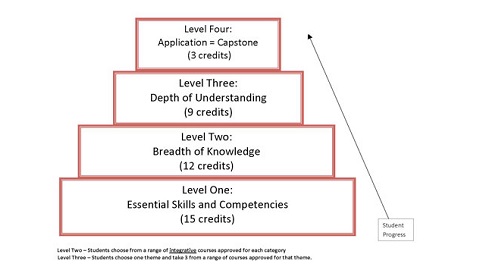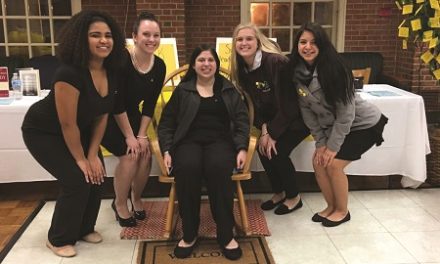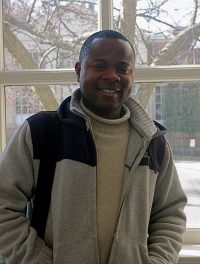By Brittany Wilson (Whetstone Staff Writer)
After more than two years of planning, Wesley College implemented its new core curriculum this fall – the College’s first revision of its core curriculum in about 20 years.
“It had been a long time and we felt like it needed to be updated,†said Dr. Jack Barnhardt, associate professor of psychology and Chair of the faculty’s Core Curriculum Committee. “Over the years, programs come and go, so the core slowly transforms from what it was initially designed to do.â€
The core curriculum is composed of roughly 39 credits that all students are required to take, regardless of their major.
The new core consists of four levels.
Level one classes focus on providing students with the basic skills they need to succeed in college, including two classes of college writing, one math course and one science course.
The second level holds four “integrative†courses, which help students make connections between course content and other disciplines. One second-level course, States of Grace: Theology and Early American Literature, for example, teaches the history of the church through the literature of the time, incorporating two disciplines within one class.
In the third level of the core, students take three courses within one concentration, such as “Ethical Living.†Faculty has not created courses for this level yet.
Level four is “the capstone,†and requires real-life applications, ranging from practicums to internships.
Dr. Jeffrey Gibson, associate dean for curriculum and program development, said the new curriculum is structured to move a student into more difficult course material over time.
“Under the old core, a student could be a graduating senior, taking a 100-level class,†he said. “The new core is stricter about when students take courses, and is more deliberate about having students take the classes that are most appropriate for their level.â€
Level one of the core requires five courses: College Writing I and II, a First Year Seminar, Quantitative Reasoning, and Frontiers of Science – all of which have been either created or reconstructed specifically for the new core.
Dr. Linda De Roche, Professor of English, said the core changes provide more flexibility within College Writing I and II curriculums.
“We changed the focus of the second College Writing course so the instructors can teach any subject, any genre, they wish,†she said. “They don’t just have to teach based on literature anymore.â€
The College Writing courses provide the necessary skills to write according to college expectations, said freshmen Danielle Brune,
“I loved my College Writing classes,†she said. “My professor taught us all the important parts of a story, and she taught us how to write a literary analysis, instead of a plot summary like I used to write in high school.â€
Level One also requires a First Year Seminar. Topics vary with each class, depending on the instructor.
“I have friends who really enjoyed their first year seminars,†Brune said. “Mine was really good for learning how to write. It got me in the roll of things.â€
Quantitative Reasoning is a survey math course constructed to satisfy the new core’s math requirement. The class consists of units on consumer math, probability, statistics, problem solving and measurement.
Dr. Paul Olsen, associate professor of mathematics, who helped design the course, is optimistic about the change.
“The mathematics department has only taught the course for one semester, [but] my analysis of student grades for this one semester was very positive,†he said.
Frontiers of Science was also created especially for the new core. Like a First Year Seminar, the topics covered within the class vary, depending on the professor.
Dr. Kathleen Curran, Biology professor and department chair, said the new format makes learning more proactive and hands-on for students.
“Each of us will teach our class in a different way, using the content that we like,†she said. “If you really love a subject, you’re going to convey that enthusiasm to your students, so it’s more enjoyable for everybody.â€
Curran’s frontiers of science centers on emerging infectious diseases, while Dr. Bill Kroen’s focuses on islands.
Gibson said he is eager to see how things play out.
“You can’t just turn the switch off and turn it back on—there are still students here to cycle through the old core,†he said. “There are always hurdles, but we’re trying to be as flexible as we can to provide a seamless transition for students.â€





